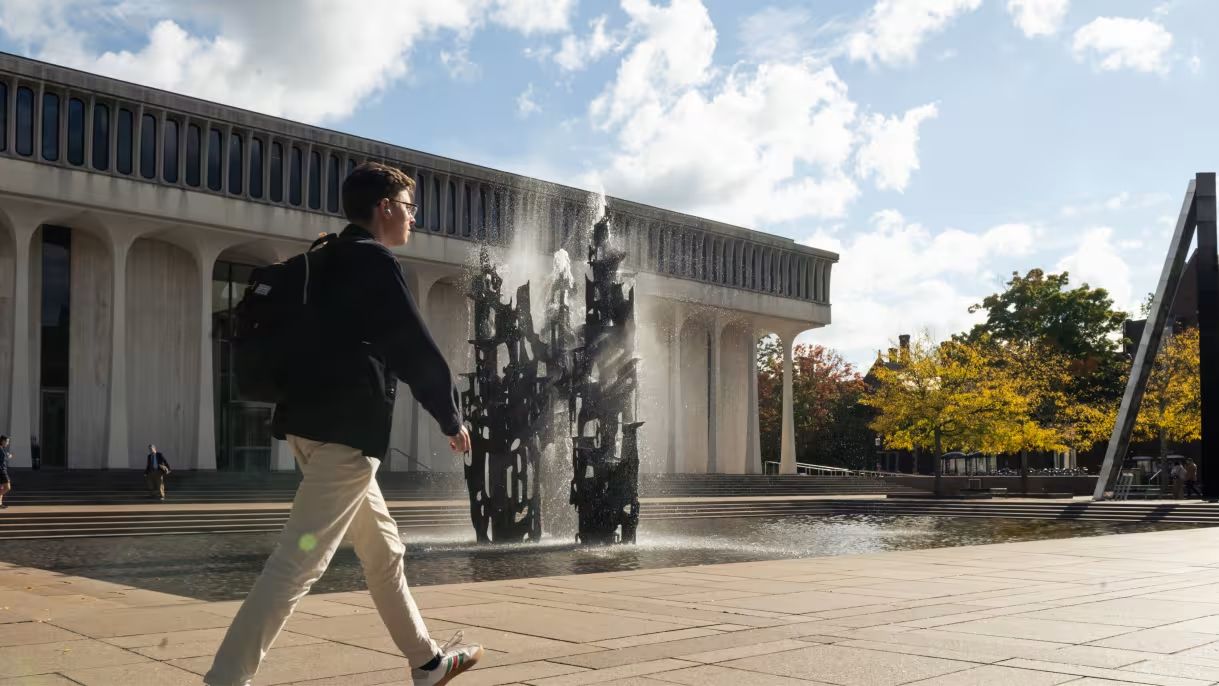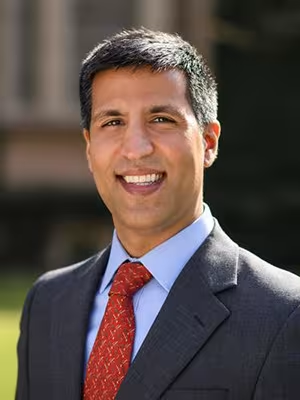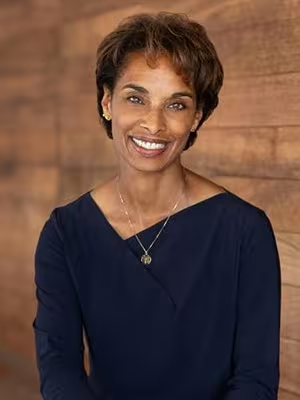

New Fall Courses Reflect Changing Public Service Landscape
The start of the school year often means changes abound: New students are learning to navigate campus, recently hired faculty members are settling into their offices, and courses are being taught for the first time.
This fall, as the Princeton School of Public and International Affairs responds to the profound changes disrupting traditional paths of public service in the United States and elsewhere, two new undergraduate courses signal one way the School is meeting the moment and helping students find ways to serve.
The first, SPI 415, explores contemporary issues in philanthropy. Taught by Aly Kassam-Remtulla, vice provost for international affairs and operations at Princeton, the course dives into the world of foundations, grantmaking organizations, and nonprofits, offering insights for students who have an interest in pursuing careers in those areas.

“Private foundations are not only essential funders of innovative nonprofit organizations but also influential actors in shaping public policy at home and abroad,” said Kassam-Remtulla, who was a program officer at the MacArthur Foundation before he joined the university in 2010. “Through this course, I want students to appreciate both the scale of the sector and the meaningful impact they can have through it.”
Nonprofits account for about 10% of all jobs outside of the government, according to the U.S. Department of Labor. People pursuing degrees in public service are likely to interact with the sector even if they don’t work directly in it, through such avenues as professional membership, volunteer opportunities, and board service, Kassam-Remtulla added.
Each week, Kassam-Remtulla will invite a leader from the philanthropic sector as a guest lecturer. While on campus, some of them will also meet with students who are not in the class and participate in fireside chats before or after their lectures. The lineup includes current and former leaders of the Gates Foundation, Atlantic Philanthropies, Ford Foundation, Robert Wood Johnson Foundation, and Doris Duke Foundation.
Adding a course on philanthropy is particularly valuable at this moment, noted Paul Lipton, senior associate dean for academic administration. Federal job and grant cuts have made it harder for students to find internships and jobs in the federal government, making foundations and nonprofits an important avenue to explore.
“As a policy school, Princeton SPIA is constantly evaluating curricula and adapting to the needs of the moment,” said Lipton. “At this time of unpredictability and disruption in some of the more popular paths to public service, we want to make sure our students are exposed to and feel confident pursuing a wide range of opportunities. Aly’s course enriches an existing docket of timely offerings, including classes on artificial intelligence, climate change, immigration, and cyberwarfare.”

A second course, SPI 414, will focus on designing policy innovation. Cecilia Rouse, the Katzman-Ernst Professor in the Economics of Education and a professor of economics and public affairs said the course reflects her belief that the United States needs fresh approaches to the formidable problems it faces today. Rouse is also the president of The Brookings Institution and a former dean of Princeton SPIA.
“True innovation is hard, and much of our policy apparatus was designed in a different time with a somewhat different economy and society,” Rouse said. “We will need people who are able to be brave and creative to come up with new solutions to address these issues.”
The course description acknowledges the evolving nature of the topics at hand — from the role of the federal government in addressing policy challenges to whether existing institutions have kept up with changes in the U.S. economy and society.
“We will need to address the changes in Washington head on in this course,” Rouse noted, adding that she hopes students will learn how to break down big problems into solvable elements and become savvy at analyzing potential solutions. “I’m excited to see how the students think through alternatives for addressing big and important policy issues confronting our country today.”

